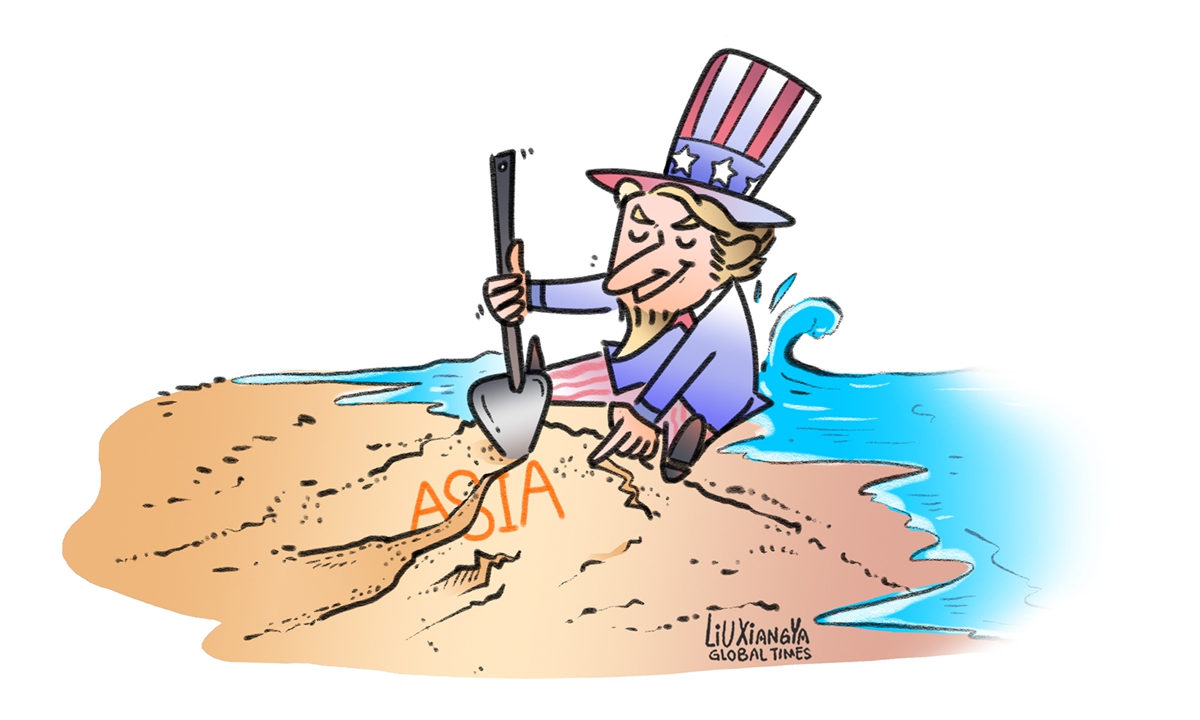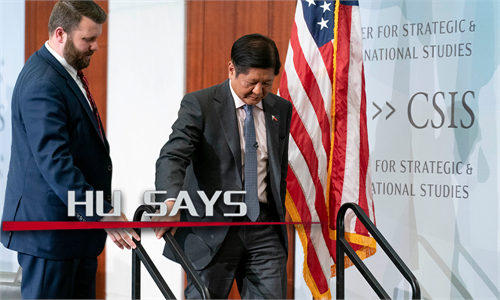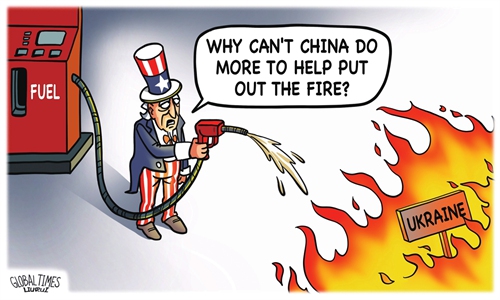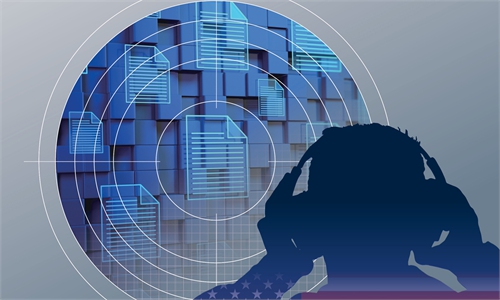
Illustration: Liu Xiangya/GT
The recent frequent Asia-Pacific moves of the US have attracted attention. It welcomed South Korean President Yoon Suk-yeol in late April, and then Philippine President Ferdinand Marcos Jr. in May. Joe Biden will not only go to Japan to participate in the G7 summit, but will also head to Australia for the US-Japan-India-Australia (Quad) quadrilateral summit. Between his visits to Japan and Australia, he will make a stopover in the Pacific island nation of Papua New Guinea, where he will meet with Prime Minister James Marape and other leaders of the Pacific Islands Forum.These series of moves appear to be aimed at strengthening alliances with South Korea, the Philippines, Japan and other countries and increasing the US' security and economic focus on the South Pacific region, but their real purpose is to place the Asia-Pacific region as the center of the US' global diplomacy and isolate China by forming alliances, while suppressing and containing China in terms of geostrategy and geoeconomics. This practice of intensifying inter-country confrontation to ensure US unipolar hegemony is putting the economic prosperity and development of the Asia-Pacific region at an unprecedented risk since the end of the Cold War.
Under the pressure and wooing of the Biden administration, the "alliance politics" began to ferment. On the surface, Yoon's visit to the US is to commemorate the 70th anniversary of the establishment of the South Korea-US alliance. However, judging from the "Washington Declaration" unveiled by both sides, the Yoon administration is not only falling into the political, economic and diplomatic orbit of the US, but also eager to upgrade military cooperation with the US which may bring South Korea "nuclear status." Therefore, it has tried to curry favor from the US on issues such as Korean Peninsula affairs and the direction of East Asian regional security. This will not only inevitably arouse the dissatisfaction of regional countries, but also exacerbate the tension on the Korean Peninsula and trigger new divisions in South Korea's domestic political situation and public opinion.
The visit of Japanese Prime Minister Fumio Kishida to Seoul was the first by a Japanese prime minister in 12 years. Speculation about whether the US, Japan and South Korea will form a trilateral military alliance is currently in the air. What is certain is that the commonality of the domestic extreme right-wing political forces respectively represented by Yoon and Kishida has dramatically narrowed the diplomatic and security positions of South Korea and Japan. Is it Yoon's "magnanimity," or his own political interests and extreme conservative ruling line, that led to his dismissal of the historical pain between South Korea and Japan?
Marcos held a meeting with Biden at the White House on May 1 and issued a joint US-Philippines statement. The statement reaffirmed the strengthening of the US-Philippines alliance, the expansion of US military bases and troop scale in the Philippines, and the launch of the US-Philippines-Japan and US-Philippines-Australia trilateral cooperation plans. Marcos wants close military cooperation with Japan and Australia in the South China Sea, and to launch a joint navigation operation in the South China Sea with the support of external forces. This series of actions by the Philippines reflect its position, which is to strengthen the diplomatic and military presence of the US in order to check and balance China on maritime disputes.
But Manila is very clear that relying on the US to contain China on the South China Sea issue does not mean that the Philippines has to choose a side between China and the US. After returning from his US visit, Marcos stated that his agreement to grant the US access to more military bases in his country was not intended for use for "offensive action" against any country. This statement is an attempt by the Marcos government to re-strike a balance between China and the US. Unfortunately, expanding US military bases in the Philippines and strengthening diplomatic and security ties with external countries will only put the Philippines at the forefront of Asia-Pacific security risks.
From Donald Trump to Biden, the US has been trying to build the Quad into an Asia-Pacific version of NATO. Since the outbreak of the Ukraine crisis, the Biden administration has been trying to tie China and Russia together, pushing NATO to move eastward and urging its Asia-Pacific allies to act tough on China. However, the US is determined to maintain hegemony in the Asia-Pacific region, and does not hesitate to suppress and contain China by encouraging bloc confrontation, undermining regional economic cooperation, and pushing for a new Cold War.
The author is executive dean of the School of International Studies under Nanjing University. opinion@globaltimes.com.cn



